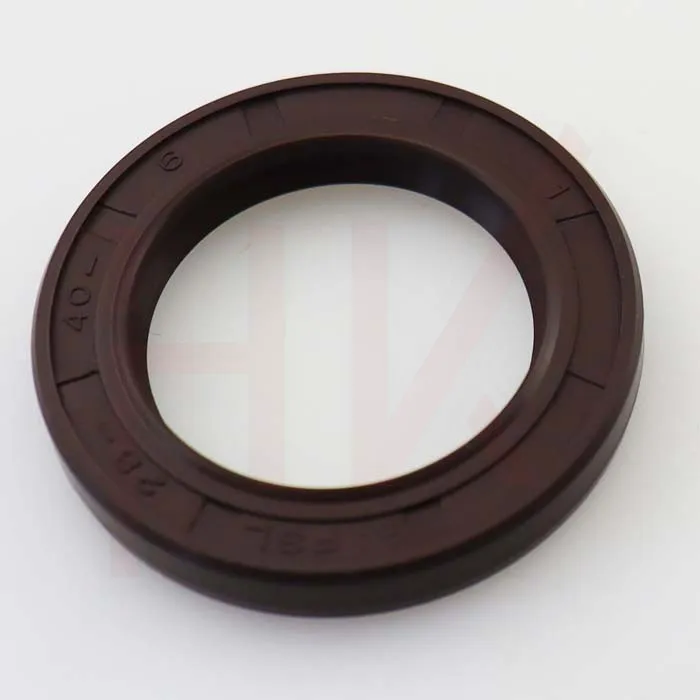Dec . 11, 2024 10:38 Back to list
Understanding the Benefits and Applications of Skeleton Oil Seals in Machinery
The Importance of Skeleton Oil Seals in Industrial Applications
Oil seals play a crucial role in various mechanical systems, acting as barriers to prevent the loss of lubricating fluids while simultaneously protecting machinery from contaminants. Among the different types of oil seals available, the skeleton oil seal has gained significant attention for its versatile applications across diverse industries. This article delves into the structure, functionality, advantages, and applications of skeleton oil seals.
What is a Skeleton Oil Seal?
A skeleton oil seal, also referred to as a metal-composite or steel-reinforced oil seal, features a unique design that includes a metallic outer ring and a rubber sealing lip. The skeleton structure imparts strength to the seal while retaining the flexibility required for effective sealing. The outer metal casing usually consists of stainless steel or other durable materials, ensuring resistance to wear, abrasion, and environmental stressors.
The inner sealing lip is typically made from high-performance elastomers, such as Nitrile Rubber (NBR), Viton, or Fluoroelastomer (FKM). These materials are chosen for their excellent resistance to heat, oil, and chemical exposure. The combination of metal and elastomer provides a robust solution for sealing applications in demanding environments.
Functionality of Skeleton Oil Seals
The primary function of a skeleton oil seal is to enrich the efficiency and longevity of machinery while maintaining a clean operational environment. They perform several critical roles
1. Leak Prevention Skeleton oil seals effectively curb the leakage of lubricants from machinery. By providing a tight seal around rotating shafts, they ensure that the oil remains within the system, thereby reducing the need for frequent replenishments.
2. Contamination Protection They guard against the ingress of dust, dirt, and other contaminants that could degrade the lubricant or damage moving parts. This protection is vital to sustaining the integrity of the machinery.
3. Pressure Management In some applications, skeleton oil seals help manage internal pressures by accommodating fluctuations caused by temperature variations or mechanical operations. Their flexible design allows for dynamic adjustments, maintaining the seal's effectiveness over time.
Advantages of Skeleton Oil Seals
Skeleton oil seals provide numerous benefits, making them a preferred choice in many industrial sectors
skeleton oil seal

- Durability The steel reinforcement offers enhanced resistance to wear and tear, resulting in a longer lifespan compared to traditional rubber seals.
- Temperature Resistance With the capacity to withstand a broad range of temperatures, skeleton oil seals maintain their sealing properties in both high and low-temperature environments.
- Versatility They are suitable for a variety of fluids, including oils, fuels, and chemicals, making them adaptable for numerous applications, from automotive and marine systems to heavy machinery.
- Cost-Effectiveness Although the initial cost of skeleton oil seals might be higher than conventional seals, their durability and efficiency lead to reduced maintenance and replacement costs over time.
Applications of Skeleton Oil Seals
The versatile nature of skeleton oil seals allows them to be widely utilized across multiple industries
- Automotive In vehicles, skeleton oil seals are commonly employed in engines, transmissions, and differential systems to ensure smooth operation and increased reliability.
- Pumps and Compressors These seals are integral to pumps and compressors, which often operate under high pressure and require effective sealing to prevent leaks.
- Industrial Equipment Heavy machinery used in manufacturing and construction frequently rely on skeleton oil seals for reliable performance under demanding conditions.
Conclusion
In summary, skeleton oil seals are indispensable components that enhance the efficiency and operational longevity of various mechanical systems. Their robust construction, combined with the flexibility of elastomer materials, makes them a reliable choice for industries ranging from automotive to heavy machinery. As technology continues to evolve, the design and materials used in skeleton oil seals will likely advance, further strengthening their position as critical elements in modern engineering solutions.
-
TCN Oil Seal Metal Ring Reinforcement for Heavy Machinery
NewsJul.25,2025
-
Rotary Lip Seal Spring-Loaded Design for High-Speed Applications
NewsJul.25,2025
-
Hydraulic Cylinder Seals Polyurethane Material for High-Impact Jobs
NewsJul.25,2025
-
High Pressure Oil Seal Polyurethane Coating Wear Resistance
NewsJul.25,2025
-
Dust Proof Seal Double Lip Design for Construction Equipment
NewsJul.25,2025
-
Hub Seal Polyurethane Wear Resistance in Agricultural Vehicles
NewsJul.25,2025
-
The Trans-formative Journey of Wheel Hub Oil Seals
NewsJun.06,2025
Products categories
















